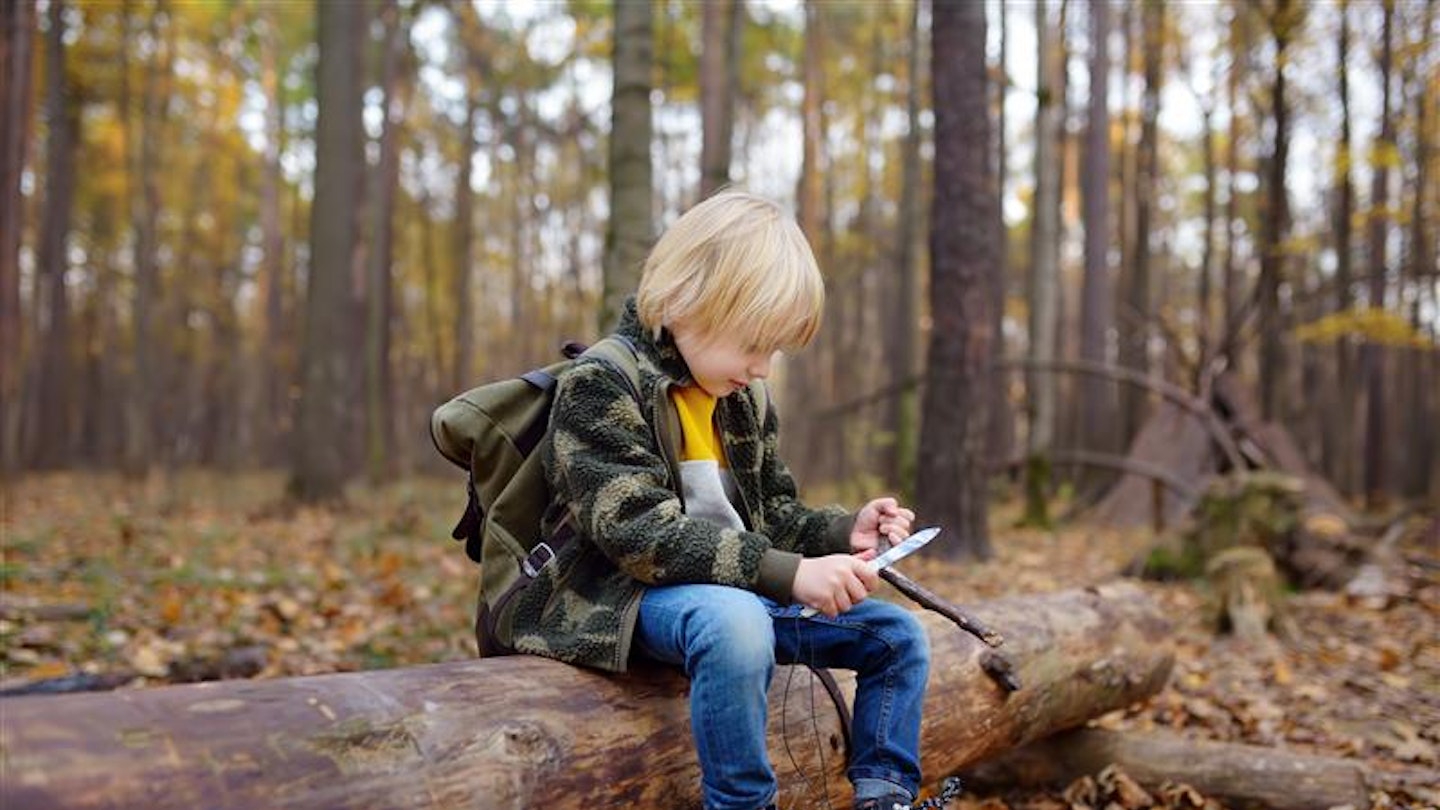I’m settling down to my first coffee of the day when an email pops up. It’s from my son’s Scout group, so I’m expecting an invitation to bake something. Instead it reads: ‘On Wednesday we build bonfires! Bring daggers!’
He is seven years old. And no, he hasn’t joined a gang: we're living in the land of Vikings where kids are regularly tooled-up fire starters. Welcome to Denmark.
Having relocated to the land of Nord before I became a parent, I was startled by the way they did things living Danishly. Now, three kids in, I’m a convert. The seven-year-old has his own tool kit, complete with hammer, saw and screwdrivers (flat head and cross head). He can barely read or write – Scandinavians aren’t fussed about ‘book learning’ before the age of eight - but he can build a boat and kindle a campfire.
My pre-schooler twins attend the terrifying institution known as ‘family Scouts’. Essentially: watching toddlers whittle, wield axes and play with matches. I was at one of these gatherings where I first heard myself utter the now famous family catchphrase: ‘You can have a saw once you’re four!’ To a two-year-old.
At a standard Danish day-care, children go on 5km hikes and play outside come snow or sleet - returning home with cuts, bruises and (only very occasionally) black eyes. But I’m okay with this. After years of research into happiness – and sadness – I’ve learned that allowing children to experience risk and discomfort in nature is crucial to help them survive and thrive in the modern world.
We all know that spending time in nature is good for us, but studies now show it can make us more resilient, too. We may fall, or cut ourselves, or be stung by nettles. It might rain. We may get cold. We’ll have to bear countless other discomforts. But these things make us stronger. Getting out and spending time in nature helps shore up our mental health against the Big Stuff. Researchers from Aarhus University in Denmark discovered that children who spend more time playing outside in green spaces are less likely to develop psychiatric disorders as adults. Norwegian play researchers Ellen Sandseter and Leif Kennair studied children’s risky play from an evolutionary perspective and found that it helped them extend their coping abilities incrementally, allowing them to take on greater challenges. A 2013 review of stress research claimed that ‘stress inoculation’ is a form of immunity against later stressors, just as vaccines immunise us against diseases
And if we don’t immunise children with this kind of stress, we’re storing up problems for later. Researchers fear ‘increased neuroticism’ and other mental health issues in future if children aren’t allowed to take part in age-appropriate risky play. Because this is the direction we’re headed. Children today only spend half as much time playing outside as their parents did, and in England fewer than a quarter of children regularly use their local ‘patch of nature’, compared with more than half of all adults when they were children. Just under 10% of children regularly play in wild places, compared to almost half a generation ago. And kids are experiencing more mental health problems, too.
For those born after 1994 (iGen or Gen Z) anxiety levels and depression have never been higher. In the UK there has been a sharp rise in the number of Gen Zers being treated for mental health problems, according to statistics published by NHS Digital. Previous generations lived through world wars. But today’s kids are less well equipped to cope and so are suffering more. Of course there are new pressures – like social media and the small matter of a global pandemic. Still: wars.
But there is an easy remedy. As Dr William Bird, GP and medical adviser to Natural England puts it: ‘The outdoors can be seen as a great outpatient department whose therapeutic value is yet to be fully realised. Other countries are wiser to this. In Scandinavia and parts of Germany, kids are routinely turfed outdoors to fend for themselves. Germans are building ‘risk’ into playgrounds so that kids grow up "risk competent" following a major study showing that "children who had improved their motor skills in playgrounds at an early age were less likely to suffer accidents as they got older."
Viking kids run, jump, climb, fall and get up again. They’re out in nature, for hours every day. It’s cold and wet and uncomfortable at times. But they cope. They learn to cope, early. Norwegians hold the gold standard for outdoor living with friluftsliv – or free air life – a secular religion in Norway and the one thing credited with getting Norwegians and their mental health through the pandemic. During my last trip there, I was alarmed to find Norwegians getting their friluftsliv in weather so cold, my eyelashes froze open. Now that’s what I call commitment.
‘I believe that children have the right to freeze from time to time, to be hungry once in a while, to get scratches…and to bleed a little,’ says Norwegian sociologist Gunnar Breivik. He even argues we have ‘failed as parents’ if our children haven’t broken anything by the time they turn 18. A terrifying prospect? Yes. Smart? Possibly. As I watch my seven-year-old swing from a tree by one arm, I calculate that I’ve only got another nine years to go. Wish me luck.
Helen Russell is a journalist, happiness researcher and author of How To Be Sad, the key to a happier life****, out 20th January in paperback
